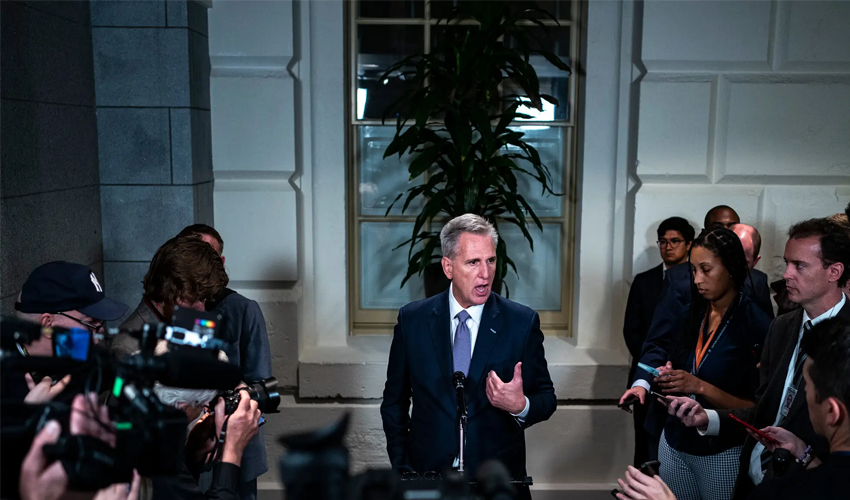In a dramatic eleventh-hour twist, the United States House of Representatives has voted overwhelmingly, 335 to 91, in favor of a 45-day extension of federal funding.
The fate of the bill now hangs in the balance as it heads to the Senate, casting a shadow of uncertainty over the nation's finances.
However, the broad bipartisan support in the House has increased pressure on senators to accept the stopgap measure and avert a potentially disastrous government shutdown.
House Speaker Kevin McCarthy, R-Calif., who had steadfastly refused to consider any spending bill requiring Democratic support for weeks, performed a political about-face.
Facing the specter of a shutdown, McCarthy implored both parties to set aside their differences and prioritize the American people's welfare. "What I am asking, Republicans and Democrats alike, put your partisanship away, focus on the American public," McCarthy urged reporters before the vote.
The bill not only extends federal funding but also grants an extension of authorization for the Federal Aviation Administration until the end of the year and allocates $16 billion for emergency disaster assistance as requested by the White House.
Notably, it does not include any funding for Ukraine, a contentious issue that has polarized lawmakers.
The Senate's stance on the bill remains uncertain, as the Senate was poised to vote on its bipartisan funding proposal at the same time as the House.
House Democrats attempted to stall progress on their bill to give the Senate an opportunity to vote first on their version, which includes aid for Ukraine.
As the Senate deliberated, the House Appropriations Committee's Democratic staff released an analysis criticizing the bill for its omission of Ukraine funding, adding another layer of complexity to an already delicate situation.
A government shutdown occurs when Congress fails to approve discretionary spending for the upcoming fiscal year, which starts on October 1.
The consequences of a shutdown ripple throughout the federal government, impacting a wide range of services from welfare distribution to the operation of federal courts, museums, and national parks.
During the last shutdown, approximately 800,000 federal workers were furloughed, forced to leave their jobs temporarily without pay.
This time around, the effects could extend even further, potentially affecting an even larger number of workers across various federal agencies, including the Department of Defense and members of the US military. The White House has cautioned that this could disrupt national security operations.
Federal workers like John Hubert, an airport security officer in Florida with 21 years of experience at the Transportation Security Administration (TSA), expressed frustration over being repeatedly caught in the crossfire of political brinksmanship.
"It’s ridiculous," Hubert lamented, "We should not be put in this position every single year, then used as a bargaining chip to get legislation passed."
With the Senate's decision on the funding extension bill looming, the nation watches closely, hopeful for a resolution that avoids the damaging consequences of a government shutdown.



























